The limit on out-of-pocket costs, including deductibles and co-payments, was not supposed to exceed $6,350 for an individual and $12,700 for a family. But under a little-noticed ruling, federal officials have granted a one-year grace period to some insurers, allowing them to set higher limits, or no limit at all on some costs, in 2014.
Under the policy, many group health plans will be able to maintain separate out-of-pocket limits for benefits in 2014. As a result, a consumer may be required to pay $6,350 for doctors' services and hospital care, and an additional $6,350 for prescription drugs under a plan administered by a pharmacy benefit manager.
Here is new information, mostly take from a CNBC article, regarding the out of pocket limit maximum limits that have been delayed for another year. Please see the following comments from the article with some interjected comments.
Some consumers may have to pay even more, as some group health plans will not be required to impose any limit on a patient's out-of-pocket costs for drugs next year. If a drug plan does not currently have a limit on out-of-pocket costs, it will not have to impose one for 2014, federal officials said Monday.
The health law, signed more than three years ago by Mr. Obama, clearly established a single overall limit on out-of-pocket costs for each individual or family. But federal officials said that many insurers and employers needed more time to comply because they used separate companies to help administer major medical coverage and drug benefits, with separate limits on out-of-pocket costs.
Health plans are free to set out-of-pocket limits lower than the levels allowed by the administration. But many employers and health plans sought the grace period, saying they needed time to upgrade their computer systems. ''Benefit managers using different computer systems often cannot keep track of all the out-of-pocket costs incurred by a particular individual,'' said Kathryn Wilber, a lawyer at the American Benefits Council, which represents many Fortune 500 companies that provide coverage to employees.
The law also requires coverage of dental care for children, but these benefits can be offered in a separate health plan with its own limit on out-of-pocket costs.
Federal rules say that a free-standing dental plan must have ''a reasonable annual limitation on cost-sharing.'' In states where the new health insurance marketplace will be run by the federal government, the limit on out-of-pocket costs for pediatric dental benefits can be no more than $700 for coverage of one child and $1,400 for a plan covering two or more children in the same family.
We are a health insurance broker who advises on all different health insurance plans including the Covered California marketplace and also tax penalties if you choose not to purchase coverage under the individual health insurance mandate.









